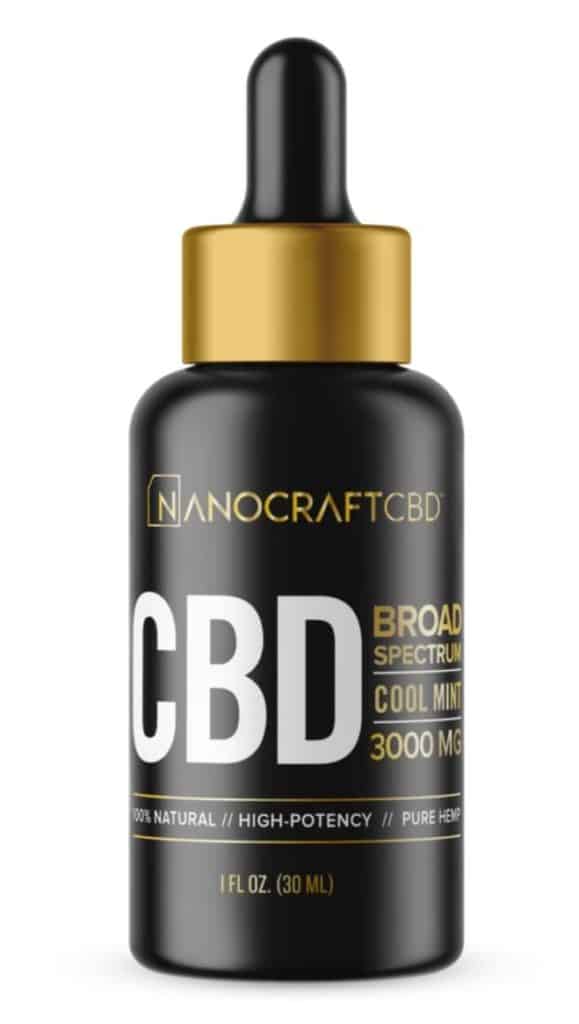CBD Oil and Cancer – Not a Cure, but a Help for Many

While claims that CBD oil can cure cancer are downright false, the research into this cannabinoid’s therapeutic benefits has been giving promising results, both for alleviating cancer and cancer treatment symptoms, and for inhibiting tumor growth. CBD has distinct values as a supplemental treatment. Read on to learn more.
Cancers or malignant tumors are disorders in which abnormal cells develop and start dividing uncontrollably. They can spread to other parts of the body and cause various organ systems to eventually shut down, with a lot of pain and suffering along the way.
One of the fundamental problems with treating cancer is that it’s not one disease; there are different kinds of cell abnormalities that can occur in different kinds of surrounding tissue, and progress at a different rate. Due to the sensitive, complex and, sometimes, rapidly evolving nature of the disease, treatment is, sadly, often in vain.
The Scope of the Disease
The National Cancer Institute estimates that approximately 38.4% of men and women are diagnosed with cancer at some point during their lifetimes. In the US, the mortality rate is significantly higher in men.
Higher mortality is also correlated with race, and this is likely attributable, at least in part, to the ability to afford quality healthcare. Global trends support the connection with social status, as 65% of cancer deaths occur in developing nations in Central America and parts of Africa and Asia.
According to a 2018 WHO report, the most common cancers, in descending order of frequency, are: breast cancer, lung cancer, prostate cancer, colorectal cancer, melanoma of the skin, bladder cancer, non-Hodgkin lymphoma, kidney and renal cancer, endometrial cancer, leukemia, pancreatic cancer, thyroid cancer, and liver cancer.
Conventional Cancer Treatment
There are many different ways to treat cancer, depending on its localization, nature, and stage. If possible, surgery is performed to remove the entirety or as much as possible of the tumorous tissue. If not, appropriate methods are explored, and they involve a combination of immunological response boosting and the destruction or containment of cancer cells.
It’s an understatement to say that most cancer treatments have undesirable side effects. Chemotherapy and radiation therapy are some of the most effective and well-known, and their aim is to kill the tumors and preserve as much as possible of the healthy cells. They both cause aches, prolonged nausea and vomiting, intense fatigue, loss of appetite, gastrointestinal problems, painful sores, hair loss, and a variety of other miserable symptoms.
Due to this, many are turning to alternative and holistic treatments. Numerous “cures” for cancer are being marketed to desperate patients, often touting anecdotal reports or individual case studies as “evidence” of their effectiveness. Sadly, while hundreds of clinical trials are ongoing at any given moment, no method has been adopted from the fringes of scientific acknowledgment. The standard practices remain default and the most effective choices, their devastating bodily impacts notwithstanding.
Can CBD Oil Help with Cancer?
CBD oil can help cancer patients manage some of the common, debilitating symptoms of both cancer and cancer treatments: pain and inflammation, nausea, anxiety, and depression. Additionally, there is some promising research being done on the antitumor effects of CBD as well as THC, but using these cannabinoids as cancer therapy is still far fetched and comes with serious caveats.
Let’s first take a look at the secondary symptoms of cancer and CBD’s potential in alleviating them.
Pain Relief
Cancer and cancer treatment can both cause immense pain. It can arise as a consequence of inflammation, nerve injury, or pressure/damage to internal organs and tissue. Sometimes, cancer pain can become difficult or impossible to manage with pharmaceuticals and even opioids.
The analgesic and anti-inflammatory effects of CBD are some of its best-researched and most widely tested therapeutic benefits. They have been demonstrated extensively in scientific studies spanning many decades,1 and have been confirmed by a large number of individual users worldwide.
These effects are attributable to the indirect interaction of CBD with the endocannabinoid system,2 one of the key internal pain regulation systems with modulatory actions at all stages of pain processing and receptors distributed throughout the body.3
CBD was found to boost the signaling of anandamide through its indirect action on the CB2 endocannabinoid receptors.4 Anandamide is a neurotransmitter linked to feelings of well-being and happiness. CBD then prevents its reuptake, allowing for excess quantities to enter the bloodstream and incur pain relief.

CBD also interacts with several other receptors (TRPV1, alpha-3 glycine, and glutamate NMDA receptors),5,6,7 which have all been connected with pain suppression effects.
Read our full article on the use of CBD oil for pain management here
Nausea and Vomiting
While anti-emetic effects of cannabinoids are usually attributed to THC, a 2011 study found that both CBD can also suppress nausea when ingested in low quantities.8 The researchers assumed that this process happens via the indirect activation of the 5-HT1A serotonin receptor by CBD.
The study concluded that, by lowering the rate of occurrence of nausea and vomiting after invasive treatments like chemotherapy or radiotherapy, CBD can alleviate the side effects of treating malignant tumors and thus indirectly help cancer patients heal quicker.
Cannabidiolic acid (CBDA), the raw form of CBD, which can be extracted from the growing cannabis plant, before it has been dried, was found to be even more active at the serotonin receptors. A 2013 study on rats has shown that its anti-emetic effects are stronger than both those of CBD and THC.9
Anxiety and Depression
As common consequences of a cancer diagnosis, prognosis, and ensuing treatment, anxiety and depression are mental disorders suffered by many cancer patients. They are also among the most common therapeutic applications of CBD oil.
A 2015 review of scientific research found overwhelming support for the effectiveness of CBD in treating generalized and specific anxiety.10 Likewise, a 2014 review of studies on rat models found significant antidepressant effects of CBD reflected in the animals’ behaviors in various tests.11 Additionally, online forums are saturated with positive feedback from CBD users, with many touching stories to boot.
It’s thought that the anxiolytic and antidepressant effects of CBD are a result of its interaction with the 5-HT1A serotonin receptor. Levels of serotonin, the neurotransmitter responsible for governing mood, sleep, digestion, and behavior, and how well its receptors perform, have been shown to directly regulate anxiety levels.12
Read our full articles on managing depression and anxiety with CBD oil
Antitumor Effects of CBD and THC
While many cancer patients have been using cannabis for palliative purposes, this 2018 research review notes that an “increasing number of preclinical studies indicates their anticancer properties.”13 The researchers reference in vitro and in vivo experiments which “have shown that cannabinoids inhibit proliferation of cancer cells, stimulate autophagy and apoptosis, and have also a potential to inhibit angiogenesis and metastasis.”
Put simply, this means that, reportedly, cannabinoids are able to make cancer cells self-destroy as well as to retrain the immune system to kill the abnormal cells – to a certain extent and in a limited range, of course. However, the research conducted so far mostly used isolated cells and tissue, rat models, or, at best, human tumors grafted onto immunosuppressed rodents.
A 2014 study used immune-competent mice, and examined the effects of both THC and CBD on brain cancer or glioma, one of the most aggressive cancers in adult humans.14 The researchers combined cannabinoids with radiotherapy and found that the tumors were significantly reduced, with little to no immune suppression.
So, in short, we have limited reason to believe that these two cannabinoids may have antitumor effects, but without human clinical trials, it is mostly theoretical. Investigating the use of THC for cancer is hindered as with all consciousness-altering compounds, so hopes are that CBD, the non-psychotropic cannabinoid, will receive more scientific scrutiny and testing on humans in the near future.15
CBD Oil and Cancer – Only for Managing the Symptoms
The use of CBD oil in cancer treatment can only be supplemental to the main therapy prescribed by the oncologist, and should exclusively follow their consultation and recommendation. This is because, although CBD can be highly beneficial, there are several ways in which it can make matters worse:
- While CBD oil may alleviate the suffering and restore some lucidity and vitality in cancer patients, these effects should in no way be interpreted as remission. Ending chemotherapy or radiotherapy because of an improvement in the symptoms brought about by CBD oil can be a deadly mistake.
- CBD oil has been shown in many studies to reduce appetite and cause weight loss. This can be detrimental for cancer patients.
- The use of high doses of CBD oil can adversely affect liver function. This was reported in numerous studies that looked into treating serious conditions, such as epilepsy, with CBD. This is why only low doses should be used.
- Due to the CBD product market being unregulated, products available to purchase can contain active concentrations that vary from those indicated; this applies both to CBD and THC. In addition, CBD extracted from industrially-grown hemp may also contain various toxins, such as pesticides and heavy metals. CBD products made from CBD-rich cannabis plants are usually ‘cleaner’ and more effective.
- CBD has been shown to inhibit certain enzymes (CYP2D6 and CYP3A4) responsible for the metabolism of drugs. This can affect how the compounds are metabolized and either reduce their efficiency or make them more harmful. This includes chemotherapy and other pharmaceuticals which the FDA warns shouldn’t be mixed with grapefruit juice (grapefruit inhibits the same enzymes).
In summary, consuming CBD oil for cancer symptom management should only be done in low quantities and with the explicit approval of the oncologist providing the medical care. If used lightly, correctly, and without interactions with other medication, CBD oil can be an invaluable ally in making the journey of cancer less distressing and more dignified.
Have you, or someone you know, had benefit from using CBD for cancer symptom management?
Please share the experience with us in the comments below.
References
1 https://www.ncbi.nlm.nih.gov/pmc/articles/PMC6277878/
2 https://www.ncbi.nlm.nih.gov/pubmed/25846617
3 https://www.ncbi.nlm.nih.gov/pmc/articles/PMC2430692/
4 https://www.ncbi.nlm.nih.gov/pmc/articles/PMC3316151/
5 https://www.ncbi.nlm.nih.gov/pmc/articles/PMC1575333/
6 https://www.ncbi.nlm.nih.gov/pubmed/22585736
7 https://www.sciencedirect.com/science/article/abs/pii/S0161813X15001229
8 https://www.st-va.ncbi.nlm.nih.gov/pmc/articles/PMC3165951/
9 https://pubmed.ncbi.nlm.nih.gov/23121618/
10 https://www.ncbi.nlm.nih.gov/pmc/articles/PMC4604171/
11 https://pubmed.ncbi.nlm.nih.gov/24923339/
12 https://pubmed.ncbi.nlm.nih.gov/27353308/
13 https://www.st-va.ncbi.nlm.nih.gov/pmc/articles/PMC5852356/
14 https://mct.aacrjournals.org/content/early/2014/11/12/1535-7163.MCT-14-0402
15 https://www.st-va.ncbi.nlm.nih.gov/pubmed/25503438
